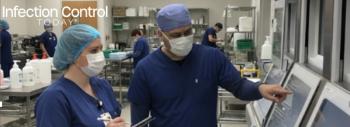
Duodenoscope With Sterile, Disposable Endcap Cleared by FDA
Latest development in the push to reduce risk of infection from the devices.
The push by the US Food and Drug Administration (FDA) for duodenoscopes that reduce the risk of contaminating patients continues to pay dividends in the form of new products. The technology company Olympus today announced that the FDA granted clearance for the development of its duodenoscope with a sterile, disposable distal endcap.
Called the TJF-Q190V duodenoscope, it joins other recent breakthroughs in the duodenoscope world including the Pentax Medical Video Duodenoscope ED34-i10T2 with its disposable elevator component and the totally disposable duodenoscope, the Boston Scientific Corporation’s EXALT Model D Single-Use Duodenoscope.
The breakthroughs have been coming 1 after the other after the FDA last August asked that duodenoscope manufacturers and healthcare facilities transition to duodenoscopes with disposable components.
The Olympus device features:
· Use of a sterile, clear, single-use distal endcap cover that is removed and discarded post-procedure. This design prevents the possibility of reuse.
· Improved visualization of and access to the distal end for manual cleaning and disinfection.
· A first-of-its-kind, proprietary distal-end flushing adaptor for cleaning the elevator mechanism.
· A sealed elevator wire channel port that does not require separate cleaning.
· A new water-resistant scope connector that minimizes the risk of fluid ingress.
Duodenoscopes are used in endoscopic retrograde cholangiopancreatography (ERCP) procedures; there are about 500,000 such procedures each year. They’re less invasive than traditional surgery in draining fluids from pancreatic and biliary ducts blocked by cancerous tumors or gallstones.
Ross Segan, MD, Olympus’s chief medical safety officer, said in a press release that “the further into the body we can go with minimally invasive equipment, the more power we will have to diagnose life-threatening conditions and treat them, which can lead to critical benefits, including reduced costs and improved patient outcomes and satisfaction.”
The company noted that medical statements by medical societies hold the duodenoscope to be a better alternative to treat seriously ill patients, rather than invasive surgery. “The performance of the duodenoscope is critical to reaching difficult-to-access digestive system anatomy,” the press release stated.
Kurt Heine, Olympus’s group vice president for endoscopy, said in the press release that “infection prevention is an ongoing mission that we at Olympus are committed to fulfilling, working in partnership with our customers, medical societies, and regulatory authorities to keep patients safe while providing physicians the most advanced tools and technology for accurate and effective diagnosis and treatment.”
Newsletter
Stay prepared and protected with Infection Control Today's newsletter, delivering essential updates, best practices, and expert insights for infection preventionists.




